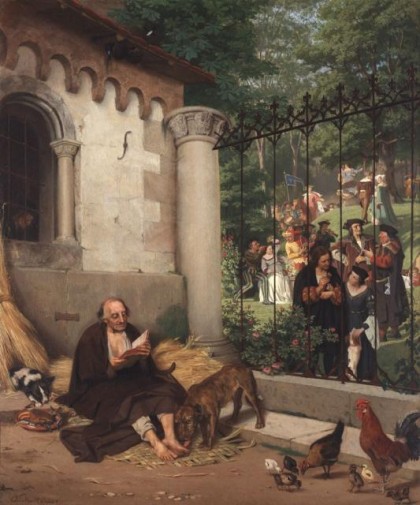“Do you think we’re worse off? That we suffer too much?”
Kate Whittaker Cousino | Aug 2, 2017 | 1 cmt
I knew what I was going to write about today. I had the outline in my head, connections drawn between half a dozen different things, the desire to write something impressively eloquent and insightful.
But then I watched this video and all my conceits were undone.
What can I say about personhood more insightful than this?
What can I say about the dignity and worth of every life that Sachiko doesn't say more eloquently just by living each day?
"Why does the world assume that a disabled life is not profoundly beautiful?" asks the video. "Do you think we're worse off? That we suffer too much? That we are less likely to be happy?"
I had a Facebook interaction yesterday with a woman who complained about the "emphasis" Christianity (Catholicism in particular) places on suffering. Shouldn't a religion bring peace and joy? Why talk so much about suffering?
I can't say I understand that complaint. We don't cause suffering by acknowledging it. And peace and joy can exist alongside suffering. Sometimes, in that mysterious way internal life works, peace and joy come into being through suffering.
There isn't a life, not a single life, that is spared suffering. Don't we know this yet? Don't we see it, experience it?

We don't like thinking about suffering. We cling to the hope that the right decisions or right philosophy will insulate us against it. We run to entertainment and alcohol and pleasure-seeking to distract ourselves from it.
We might find it uncomfortable to even be around suffering, around the hurting, the grieving, the abandoned, the wounded, the ill, the disabled. They remind us of our own vulnerability. They embarrass us with their naked need. We turn our eyes away from the suffering of the Sachikos and Lazaruses of the world and become blind as well to their beauty and happiness--and humanity.
We say things like, "I would never want to live like that," when we don't know what our subjective experience of our lives will be in the future. We offer assisted suicide to the terminally ill, to the disabled, but decry the deaths of the fit and young.
How transparent we are! How unmistakable is our message about which lives have value, all because we can't believe suffering can co-exist with joy. All because we are afraid!
How many destructive things come out of the desire to avoid facing suffering? To avoid seeing into human brokenness?
In his book, Becoming Human, L'Arche founder Jean Vanier writes,
“We human beings are all fundamentally the same. We all belong to a common, broken humanity. We all have wounded, vulnerable hearts. Each one of us needs to feel appreciated and understood; we all need help.”
What if we let our wounds lead us to greater knowledge of our common humanity? What if our brokenness were the bridge between my subjectivity and yours?
Yesterday, Devra made a connection I've never heard before. She looked at Christ's response to the hemorrhaging woman and saw in it a desire for personal interaction, for involvement with the woman as a subject for his attention. He didn't need to see her to heal her. But He wanted to see her nonetheless.
I don't want to pretend to have a lot of answers today. I want to avoid wrapping this up into a neat bow to be appreciated, understood, and forgotten. Essays can be nice and tidy and neat, but life is messy, is it not?
Instead, in memory of the 19 people killed in Sagamihara just over a year ago and the broken young man who saw no value in their lives, I will leave you with the questions I am asking myself today.
What has my fear of suffering driven me to miss, or to destroy? How many opportunities for human connection have I lost?
What beauty would I see if I stopped looking away?
Image of Lazarus and the Rich Man by Eduard von Gebhardt [Public domain], via Wikimedia Commons

Comments (1)
Gary Gibson
Aug 2, 2017 9:57pm
Beautiful, Kate. You have a remarkable gift. Thank you for allowing me to see my own bias. Keep writing!
Gary Gibson